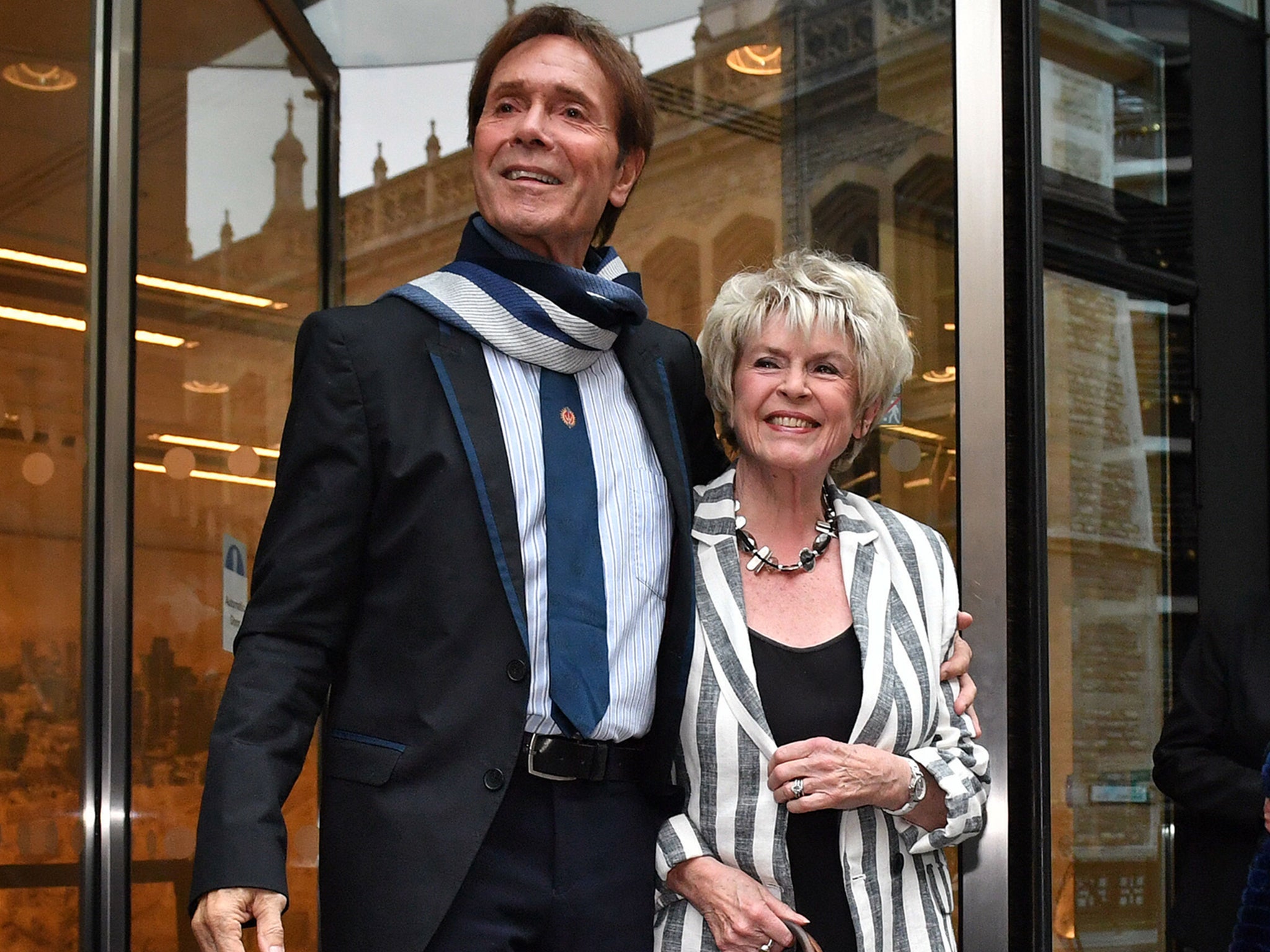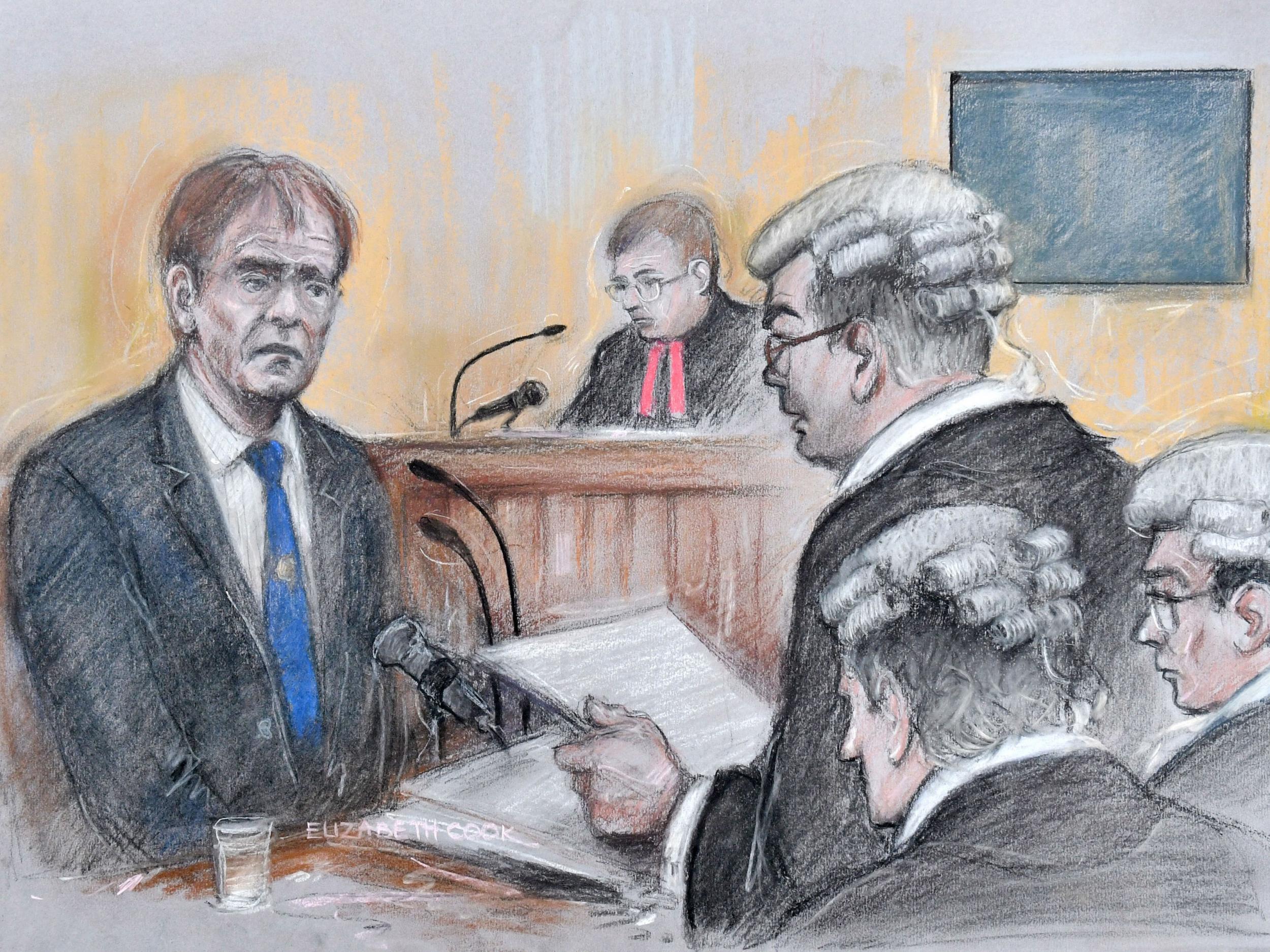Cliff Richard says he 'thought he was going to have a heart attack' over BBC coverage of house raid
Singer tells court he feels 'forever tainted' by sex abuse claims

Sir Cliff Richard has told a court he was so upset by coverage of a police raid on his property during an investigation into alleged sexual assault he thought he was “going to have a heart attack or stroke”.
The 77-year-old singer is suing the BBC over coverage of a search at his home, which his lawyers have said was a “very serious invasion” of his privacy. BBC bosses dispute the claim.
Sir Cliff began giving evidence on Friday during a trial at the High Court in London.
He also provided a written statement to the court, in which he said: “My health suffered, both mentally and physically. At one point ... I actually thought I was going to have a heart attack or stroke.”
Giving evidence in court, Sir Cliff’s voice cracked as he told Mr Justice Mann about seeing footage of the police search for the first time on the news while at a hotel in Portugal.
He said the footage was “engraved” in his memory. Cameras filmed ”right into” his apartment and had recorded officers searching through his belongings, he told the court.
He added: “It wasn’t a very pleasant feeling and by that time I had heard of the allegation and seeing it made me feel even worse.”
Sir Cliff said he was conscious that people around the world might think he was a “serious criminal”. He added: “I felt as though everything I had worked for during my life – trying to live as honestly and honourably as I could – was being torn apart.

“I felt forever tainted. I still do.”
A barrister leading Sir Cliff’s legal team has told Mr Justice Mann that BBC coverage of the search at the singer’s apartment in Sunningdale, Berkshire, in August 2014 was a “very serious invasion” of privacy.
Justin Rushbrooke QC said the singer should get compensation at the “very top end of the scale”.
The BBC says its coverage of the police raid was accurate and in good faith.
Lawyers representing BBC bosses told Mr Justice Mann that the raid was a “matter of legitimate public interest” and the broadcaster’s reporting contributed to public debate.
The trial is due to last 10 days.
The court has heard how in 2013, a man made an allegation to police saying he had been sexually assaulted by Sir Cliff during an event featuring evangelist Billy Graham at Sheffield United’s Bramall Lane football stadium. The accuser said the abuse took place in 1985, when he was a child.
Metropolitan Police officers passed the allegation to South Yorkshire Police in July 2014. Sir Cliff denied the allegation and in June 2016 prosecutors announced that he would face no charges. He voluntarily met with police during the investigation but was never arrested.
A BBC spokesman has said the broadcaster had reported Sir Cliff’s “full denial of the allegations at every stage”.
Sir Cliff initially sued both the BBC and South Yorkshire Police, but agreed to accept a £400,000 payment from the force in May 2017.
His lawyers have not indicated the total amount Sir Cliff wanted in compensation from the BBC, but said the singer spent more than £108,000 in “PR fees” in “consequence of the BBC’s unlawful conduct”. They also said he lost potential earnings when a revised edition of his book My Life, My Way had to be shelved.
“We think it is hard to imagine a case of publicity about a suspect in a police investigation which could have caused greater damage to the autonomy and dignity of the claimant, when you look at the prolonged impact it had upon Sir Cliff’s life,” said Mr Rushbrooke.
He added: “We say this is a claim for an award at the very top end of the scale.”
